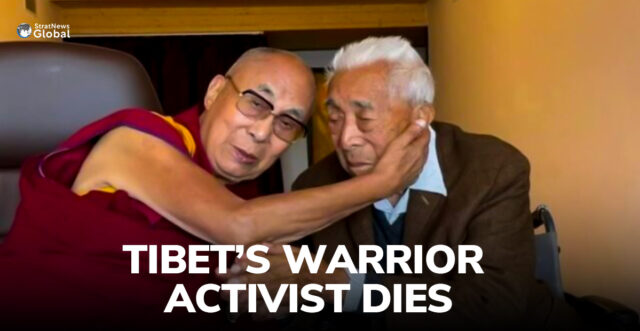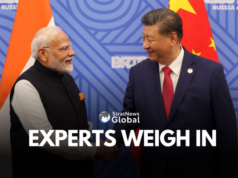The death of Gyalo Thondup was announced earlier this month. He was elder brother to the Dalai Lama, and for 40 years a trusted conduit to the Chinese, to the Indians and even to the Americans. He worked largely in the shadows, preferring to avoid the limelight, nevertheless you cannot be the Dalai Lama’s brother and expect anonymity.
As the Hong Kong based South China Morning Post (SCMP) noted, quoting Robert Barnett of the School of Oriental & African Studies in London …
“It (Thondup’s death) has brought China’s leaders ever closer to the point where there are no Tibetan, Mongolian or other non-Chinese leaders alive who can personally remind the Communist Party of the promises of autonomy and cultural tolerance it made to them in the 1950s and sometimes again in the late 1970s, but has since discarded.”
Case in point is China’s refusal to acknowledge a crucial statement made to Gyalo Thondup by the late General Secretary Deng Xiaoping who had said “Except independence (for Tibet) everything is negotiable.”
China says Deng’s statement is absent in its records and Chinese Tibetologists say there is nothing in their archives either.
Gyalo Thondup also represented a view that is not popular among Tibet’s exiled community. The SCMP quotes Prof Barry Sautman of the Hong Kong University of Science & Technology, that Thondup believed no progress could be made in terms of dialogue with China as long as the Tibetan exiles maintained that “Tibet has never been part of China,” for this he was sidelined by the exiles.
Sautman argues that any return to negotiations would require the Dalai Lama to change his “basic political orientation” and conclude that the “emigre cause … has no future.”
That line of thinking is anathema to the current Tibetan leadership in exile. But what happens after this leadership passes including the Dalai Lama?
Tibet watchers say many Tibetans have moved to the West, cannot communicate well in Mandarin, and have no experience of direct engagement with Beijing.
What about the US? Last July the US passed the Resolve Tibet Act which seeks to foster without preconditions, dialogue between the Chinese government and the Dalai Lama and to explore activities that could improve the prospects for a negotiated settlement on Tibet.
It came on the back of other legislation, Tibet policy and Support Act 2019, and the Reciprocal Access to Tibet Act 2018. But other than seeking to leverage Tibet to embarrass China, it’s not clear what Washington’s plans for Tibet are.
In this context is Thondup’s interview broadcast on Radio Free Asia in 2003, where he underscored that neither the US nor India could resolve the Tibetan issue. In fact, Thondup deeply regretted relying on US promises of Tibetan independence.
As he noted in his memoirs of The Noodle Maker of Kalimpong, “In all my life I have only one regret, my involvement with the CIA … it only sought to stir up trouble and use Tibetans to create misunderstandings and discord between China and India.”





